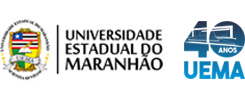Use este identificador para citar ou linkar para este item:
https://repositorio.uema.br/jspui/handle/123456789/1719Registro completo de metadados
| Campo DC | Valor | Idioma |
|---|---|---|
| dc.creator | Conceição, Ráyra da | - |
| dc.creator | Pereira, Rodrigo Ramalho Sousa | - |
| dc.date.accessioned | 2023-02-13T19:57:57Z | - |
| dc.date.available | 2023-02-13T19:57:57Z | - |
| dc.date.issued | 2023-01-16 | - |
| dc.identifier.citation | CARVALHO, Marilene Silva de. Há autoras negras nos livros didáticos de língua portuguesa? Uma análise da coleção "A conquista da FTD". 2024. 39f. Trabalho de Conclusão de Curso (Licenciatura em Língua Portuguesa e Literaturas de Língua portuguesa) - Centro de Estudos Superiores de Zé Doca, Universidade Estadual do Maranhão, Zé Doca - MA. 2023. Disponível em: https://repositorio.uema.br/jspui/handle/123456789/1719 | - |
| dc.identifier.other | CDU: M 81’271.16:373.3(812.1) | - |
| dc.identifier.uri | http://repositorio.uema.br/jspui/handle/123456789/1719 | - |
| dc.description.abstract | It is known that the language has variations motivated by its place of use. Brazil, which has continental geographic proportions, presents a linguistic diversity that deserves to be studied. It is in the school environment that the use of language presents the most diverse colors in speech. Therefore, the present work focuses on the study of linguistic variation in the classroom, contributing to the teaching of the Portuguese language in different situations of everyday communication. To achieve the proposed objective, studies by Cardoso & Mota (2006), Teyssier (1997), Mattos e Silva (1995), Bagno (1999, 2001, 2003 and 2007) and Bortoni-Ricardo (2004, 2005) will be used. among other authors carry out research related to the study of language. Thus, we opted for exploratory research, with emphasis on quantitative/qualitative with a bibliographic and descriptive approach. The group participating in this study are 8th grade students at a Municipal School in Zé Doca - MA. With a focus on the study of language variation, we direct our pedagogical actions to investigate each student's lexicon, which is a rich source to understand the formation of each individual's cultural identity. Thus, we seek to present and reflect the oral and written cultural norm for students, as well as provide reflections on linguistic prejudice in the school environment. The results point out that working with linguistic variation can be a very effective pedagogical strategy, as in the knowledge of the mother tongue and, mainly, in the fight against linguistic prejudice | - |
| dc.language.iso | other | pt_BR |
| dc.publisher | UEMA | pt_BR |
| dc.subject | Preconceito linguístico | pt_BR |
| dc.subject | Sociolinguística | pt_BR |
| dc.subject | Dialetologia | pt_BR |
| dc.subject | Linguistic prejudice | - |
| dc.subject | Sociolinguistics | - |
| dc.subject | Dialectology | - |
| dc.title | Variação linguística em sala de aula: um estudo crítico-reflexivo no 8º ano de uma Escola Municipal de Zé Doca - MA | pt_BR |
| dc.title.alternative | Linguistic variation in the classroom: a critical-reflective study in the 8th year of a Municipal School in Zé Doca - MA | - |
| dc.type | Other | pt_BR |
| dc.description.resumo | Sabe-se que a língua possui variações motivadas pelo seu lugar de uso. O Brasil, que tem proporções geográficas continentais, apresenta uma diversidade linguística que merece ser estudada. É no ambiente escolar que o uso da língua apresenta as mais diversas colorações na fala. Portanto, o presente trabalho tem como foco o estudo da variação linguística em sala de aula, contribuindo para o ensino de língua portuguesa em diferentes situações de comunicação cotidiana. Para alcançar o objetivo proposto, serão utilizados os estudos de Cardoso & Mota (2006), Teyssier (1997), Mattos e Silva (1995), Bagno (1999, 2001, 2003 e 2007) e Bortoni-Ricardo (2004, 2005), entre outros autores realizam pesquisas referentes ao estudo da língua. Dessa forma, optou-se pela pesquisa exploratória, com ênfase quanti/qualitativa com abordagem bibliográfica e descritiva. A turma participante deste estudo são alunos do 8º ano de uma Escola Municipal de Zé Doca – MA. Com o foco no estudo da variação da língua, direcionamos nossas ações pedagógicas a investigar o léxico de cada aluno, sendo está uma fonte rica para entender a formação da identidade cultural de cada indivíduo. Assim, buscamos apresentar e refletir a norma culta oral e escrita para os alunos, como também, proporcionar reflexões acerca do preconceito linguístico no ambiente escolar. Os resultados apontam que o trabalho com a variação linguística pode ser uma estratégia pedagógica muito eficaz, como nos conhecimentos da própria língua materna e, principalmente no combate ao preconceito linguístico | - |
| dc.subject.cnpq | Letras | - |
| Aparece nas coleções: | Curso de Licenciatura em Letras Língua Portuguesa e Literaturas de Língua Portuguesa - Zé Doca - UEMA - Monografias | |
Arquivos associados a este item:
| Arquivo | Descrição | Tamanho | Formato | |
|---|---|---|---|---|
| MONOGRAFIA - RÁYRA DA CONCEIÇÃO E RODRIGO PEREIRA - CURSO DE LICENCIATURA EM LETRAS CES ZÉ DOCA UEMA 2022.pdf | PDF A | 3.13 MB | Adobe PDF | Visualizar/Abrir |
Os itens no repositório estão protegidos por copyright, com todos os direitos reservados, salvo quando é indicado o contrário.
